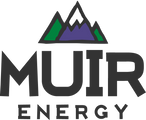Train to Eat
Jun 23, 2020
Written by Sabrina Stanley, Professional Ultra Runner & MUIR Athlete
Looking for an edge when it comes to running ultras? Start eating on your training runs. You would never start an ultra without first training with your gear or working on your fitness for months. Yet, many runners overlook the nutrition aspect of an ultra.
When running long distances, your body needs fuel. This is well understood. What is not fully acknowledge is the idea that your body needs training to break down that fuel while working at a high effort for an extended period of time. It is not uncommon for a runner to clock only a few training runs while getting some calories in their system at the same time. That would be the equivalent of showing up on race day with only a few training runs under their belt and expecting to run as if they had trained for months.
The digestive system needs to be trained as often as your muscular system. To do this, anytime you are running for more than 60 minutes, consume at least 100 calories at the 60-minute mark, then every 30-45 minutes after that. Your body may not be hungry, eat anyway. Eat on hard workouts, and easy ones. Get your stomach accustomed to breaking down the same substance that you plan on consuming on race day. Play around with sodium, proteins, sugars, carbs, and caffeine to see what works best for you.

Just as in life outside of training, try to stick with whole foods and products that have ingredients you recognize. The denser the calories, the more ideal. In a 1000-mile race it’s estimated that a runner burns 400-600 calories per hour. For the sake of argument let’s pretend that X runner is replacing those burnt calories solely with gels. In theory, this same runner has the capacity to absorb 240-280 calories an hour. If their gel has 150 calories per pouch, then they need to eat two an hour. If their gel has 100 calories, they’d need to in eat three gels an hour. Say they are aiming for a 24-hour finish, they’d have to consume an additional 24 gels during the race! Some of their calories will possibly come from an electrolyte mix, aid station food, or food their crew brought for them. That’s great and they should have a diverse selection of calories to consume while racing. The point I am zeroing in on is, the less they need to carry while running, and the less physical substance they need to ingest (especially late in a race when nothing sounds appetizing) more likely they are to have a positive race experience.
The number one reason runners drop an ultra-event is GI issues. Get an edge in your racing and training by giving your body the tools it needs to break down nutrients efficiently.


